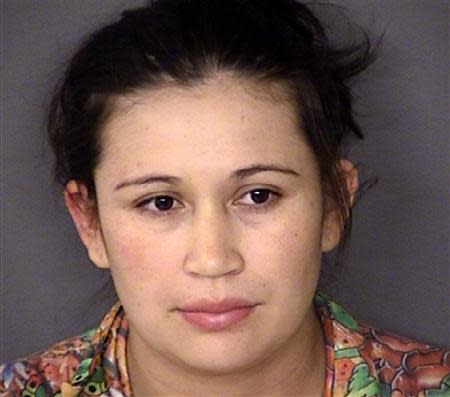Texas woman strangled newborn son, tossed him in trash: police

By Jim Forsyth SAN ANTONIO, Texas (Reuters) - A Texas woman arrested on suspicion of killing her newborn son and dumping him in the trash told detectives she "strangled the baby and watched him die," according to an arrest affidavit released by San Antonio police on Wednesday. The body of the infant, likely less than a week old, was found stuffed in a duffel bag on the intake conveyor belt of a Waste Management recycling center in San Antonio two days before Christmas. Nidia Alvarado, 25, was taken into custody on Tuesday night without incident at her home and charged with capital murder, which carries the possibility of the death penalty, police said. "It's believed that the suspect gave birth to that baby boy, and shortly thereafter murdered him by strangulation," police Sergeant Javier Salazar told reporters. Bond has been set at $2 million. Officials did not list an attorney for the suspect. Alvarado told detectives that several weeks before the birth she had tried to find somebody who would teach her how to perform a self-induced abortion, the arrest affidavit said. She also told investigators that after killing the baby, she threw the body into a dumpster at her apartment building. Salazar said it was thought Alvarado had given birth in hospital, under an assumed name. "Tips from the public" helped lead police to the suspect, he added. A Waste Management spokeswoman said the company provided police with records of the locations where its trucks had picked up the load of recyclables in which the body was found. Salazar said: "There were other children involved in the case that resided in the same place where the suspect resides." The children have been handed over to Child Protective Services while police try to find out if Alvarado is their mother. Under Texas law, a child under 60 days can be left in the care of an official employee at designated safe places, such as hospitals, fire houses or police stations. A person who drops off an unharmed infant will not be prosecuted for neglect or abandonment under the "Baby Moses Law," named for the biblical figure. The law is aimed at providing desperate parents with a responsible alternative and protects them from criminal prosecution. (Reporting by Jim Forsyth; Editing by Jon Herskovitz and Rosalind Russell)

